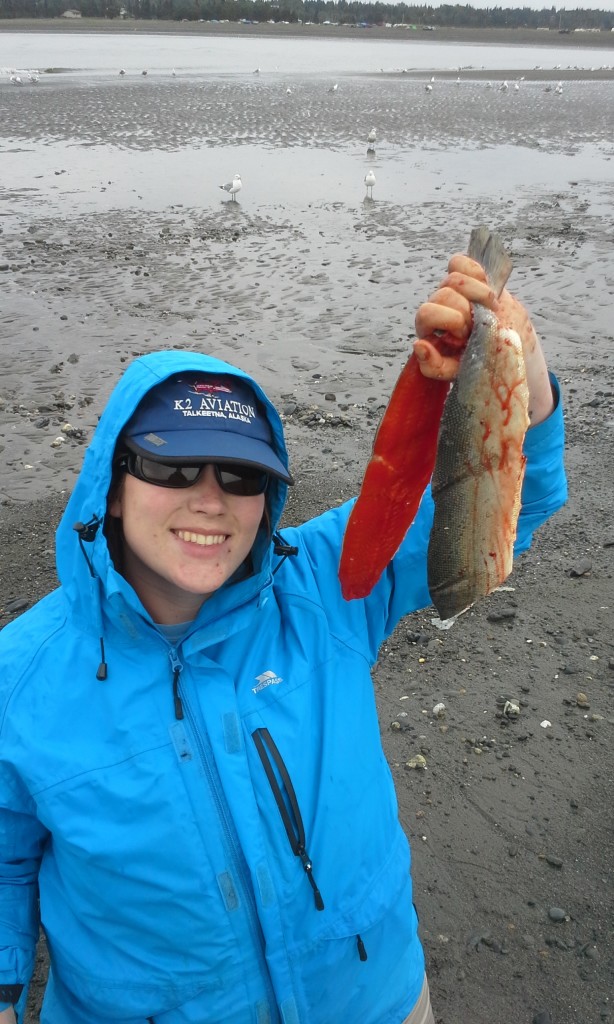 By Shadow Silvers
By Shadow Silvers
Here I am with Sarah Engstrom, a graduate student at APU. I have decided to interview her to get a feel for the program she is currently attending, the Master of Science in Outdoor and Environmental Education program, so that we can gain a better understanding of the program and the students attending said program. Enjoy part one of three interviews with students graduating in April of 2016.
1. What program are you currently enrolled in at APU?
I am currently enrolled in a program of my own devising. I started off with just the MSOEE program, but I got the idea to combine it with the K-8 Teaching Certificate Program. So I will leave APU with a Masters of Science, and a teaching certification. APU liked my idea so much that now it is offered on their website!
2. Since you are enrolled in the K-8 Teaching Certificate Program, you do not have to complete a thesis; could you tell us what you are doing instead?
Instead of a thesis, I will be creating an in-depth project about my student teaching experience. I am not sure exactly what that will look like yet, since I will need to work with my host teacher. I am hoping to incorporate some awesome outdoor or environmental education things into a more traditional classroom, since that is why I decided to combine the programs in the first place. We shall see what sort of vision my host teacher has. Middle school science is a pretty good mix for adventure in learning. I am looking forward to it!
3. How long will it have taken you to complete this program once you graduate in April?
I came into this program with several credits from my 1st year of graduate school in Minnesota, though not all of those credits transferred over to this program. I arrived in Alaska in January of 2014, and technically I could have done my student teaching this fall of 2015, but I wanted to take a little break to prepare myself. So by the time I graduate in April, I will have been an APU student for 5 semesters.
4. How does this program fit into your overall career goals?
The fact that the APU Outdoor and Environmental Education program is so well connected to the community here in Alaska is one of the main reasons why I chose it. I love that we get emails every week from amazing companies and non-profits asking for people with our skills to work in their organization. Since I will have a teaching certificate and this Masters of Science, I am hoping to find a way to combine them. Maybe that means that I will teach elementary physical education, and ask teachers to give me one concept a week that I can teach in an outdoor setting or as an active game. Maybe that means working in a museum or zoo developing programs that meet educational standards. I am not 100% sure what my future holds, but I do feel that APU has prepared me well for lots of possible outcomes.
5. What do you dislike most about the MSOEE program?
Dislike is a strong word, and I am not sure it applies to my situation as I have been very happy in the MSOEE program. I guess the only thing that I have noticed is that MSOEE, because of its location out in Palmer, is very isolated from the rest of the University. I don’t feel any connection to the rest of the school, and this sometimes means that I don’t know about cool opportunities that happen on campus. This is the main reason why the Kellogg Campus exists, to bring the two halves of APU together.
6. What do you think your greatest strengths are as a student?
As a student, I love learning new things and incorporating them into my lessons. I am a conscientious participant in discussions and reading, and I love to have fun with learning and encourage others to do so as well.
7. What new skills have you learned over the past year?
In the past year I have learned how to navigate the business of a university by being a club president. I have also learned a great deal about how publication works by being the editor of “Becoming Literate in the Language of OEE.” On a more personal note, I have really increased my skills as an Alaskan in the outdoors, by learning about fishing, hunting, sharing information about our great state and making food in a traditional way. While “Alaskan skills” are not specifically taught at MSOEE I think that being in this program has encouraged me to explore the culture of this place.

